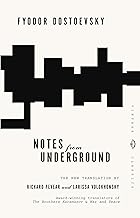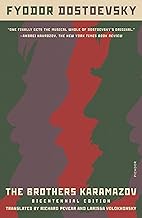
How to Read Fyodor Dostoevsky's Books on Human Nature
How to Read Fyodor Dostoevsky's Books on Human Nature
Estimated Reading Time: 10-12 minutes
Introduction
Fyodor Dostoevsky, a towering figure in Russian literature, is renowned for his profound exploration of human nature. Born in 1821 in Moscow, Dostoevsky's life was marked by personal turmoil, including poverty, imprisonment, and the loss of loved ones. These experiences deeply influenced his writing, leading him to grapple with existential questions about morality, free will, and the duality of human nature. His works, particularly "Notes from Underground" and "The Brothers Karamazov," offer unique insights into the complexities of the human psyche, making them essential reading for anyone interested in understanding the human condition.
Dostoevsky's perspective on human nature is particularly valuable because it transcends the confines of his time, addressing universal themes that resonate with readers across generations. His exploration of the darker aspects of humanity—such as suffering, guilt, and redemption—provides a nuanced view that challenges simplistic notions of good and evil. In a world grappling with moral ambiguity, Dostoevsky's insights remain strikingly relevant.
Why Fyodor Dostoevsky's Perspective Matters
Dostoevsky's approach to human nature is distinctive because it delves into the psychological and philosophical underpinnings of human behavior. Unlike many of his contemporaries, who often portrayed characters in black-and-white moral terms, Dostoevsky embraced the complexity of the human experience. He understood that individuals are often torn between conflicting desires, beliefs, and societal pressures.
His works offer profound insights into the nature of free will, the struggle for identity, and the search for meaning in a chaotic world. Dostoevsky's exploration of existential themes, such as the absurdity of life and the quest for redemption, sets him apart from other thinkers, including existentialists like Jean-Paul Sartre and Albert Camus, who would later draw upon his ideas. The lasting impact of Dostoevsky's work can be seen in literature, psychology, and philosophy, influencing countless writers and thinkers who followed.
Overview of Recommended Books
Notes from Underground
"Notes from Underground," published in 1864, is often regarded as one of the first existentialist novels. The book is divided into two parts: the first is a monologue by the Underground Man, a bitter and disillusioned former civil servant, while the second part recounts a series of events that illustrate his complex relationship with society and himself.
Main Themes and Arguments
The central theme of "Notes from Underground" is the conflict between individual freedom and societal expectations. The Underground Man represents a rejection of the rational, utilitarian ideals of the time, arguing that human beings are not merely driven by self-interest but are capable of irrationality, suffering, and self-destruction. This exploration of free will and the nature of existence raises questions about the essence of humanity itself.
Historical Context and Significance
Written during a period of significant social and political change in Russia, "Notes from Underground" reflects Dostoevsky's critique of the emerging rationalism and materialism of the 19th century. The book serves as a response to the utopian ideals of the time, emphasizing the complexities and contradictions inherent in human nature.
Key Insights and Takeaways
-
The Paradox of Free Will: The Underground Man embodies the struggle between the desire for freedom and the burden of choice. He illustrates how the quest for autonomy can lead to isolation and despair.
-
The Role of Suffering: Dostoevsky posits that suffering is an integral part of the human experience, shaping our identities and moral compass. The Underground Man’s self-imposed suffering reflects his internal conflict and search for meaning.
-
Critique of Rationalism: The book challenges the notion that human behavior can be understood solely through logic and reason, emphasizing the irrational aspects of human nature that defy simple explanation.
-
The Search for Authenticity: The Underground Man's struggle to assert his individuality highlights the importance of authenticity in a conformist society, urging readers to confront their own identities.
Why Read This Book
"Notes from Underground" is essential reading for understanding human nature because it lays the groundwork for Dostoevsky's exploration of existential themes. Those who benefit most from this book include students of philosophy, psychology, and literature, as well as anyone seeking to understand the complexities of human motivation and behavior.
The Brothers Karamazov
"The Brothers Karamazov," published in 1880, is Dostoevsky's final novel and is often considered his magnum opus. The story revolves around the Karamazov family, particularly the three brothers—Dmitri, Ivan, and Alyosha—who embody different aspects of human nature and moral philosophy.
Main Themes and Arguments
The novel grapples with profound questions about faith, morality, and the existence of God. Through the brothers, Dostoevsky explores the tension between reason and faith, the nature of good and evil, and the complexities of familial relationships. The famous "Grand Inquisitor" chapter serves as a poignant critique of organized religion and the moral dilemmas faced by humanity.
Historical Context and Significance
Set against the backdrop of a rapidly changing Russia, "The Brothers Karamazov" reflects the cultural and philosophical debates of the time, including the rise of atheism and the questioning of traditional values. Dostoevsky's exploration of these themes resonates with the existential crises faced by individuals in a modernizing world.
Key Insights and Takeaways
-
The Nature of Faith: The novel examines the struggle to maintain faith in a world filled with suffering and injustice, prompting readers to reflect on their beliefs and the role of religion in their lives.
-
Moral Ambiguity: Dostoevsky presents a nuanced view of morality, suggesting that good and evil are not absolute but rather intertwined in the human experience.
-
The Importance of Compassion: Through Alyosha's character, the novel emphasizes the power of love and compassion in overcoming suffering and fostering human connection.
-
The Burden of Choice: The Karamazov brothers' choices illustrate the weight of moral responsibility and the consequences of one's actions, reinforcing the theme of free will.
Why Read This Book
"The Brothers Karamazov" is a masterful exploration of human nature that delves into the moral and existential dilemmas that define our lives. It is particularly beneficial for readers interested in philosophy, theology, and psychology, as well as those seeking a deeper understanding of the human condition.
How These Books Complement Each Other
While "Notes from Underground" and "The Brothers Karamazov" tackle different aspects of human nature, together they provide a comprehensive exploration of Dostoevsky's philosophical inquiries. "Notes from Underground" focuses on the individual's internal struggle with free will and societal expectations, while "The Brothers Karamazov" expands this exploration to include moral and existential questions within the context of family and faith.
Reading these works in tandem allows for a deeper understanding of the complexities of human nature, as they build upon one another's themes and ideas. The progression from the isolated, conflicted Underground Man to the morally intricate Karamazov brothers highlights the multifaceted nature of humanity and the various paths individuals can take in their search for meaning.
Who Would Benefit from Reading These Books
The ideal readers for Dostoevsky's exploration of human nature include:
- Students and Academics: Those studying literature, philosophy, or psychology will find rich material for analysis and discussion.
- General Readers: Anyone interested in the complexities of human behavior and the philosophical questions surrounding existence will find value in these works.
- Professionals Seeking Practical Wisdom: Individuals in fields such as psychology, counseling, or social work can gain insights into the human condition that may inform their practice.
- Anyone Looking for Personal Growth: Readers seeking self-improvement and a deeper understanding of their own motivations and struggles will find Dostoevsky's explorations profoundly relevant.
Recommended Reading Order
- Start with: Notes from Underground - This book serves as an introduction to Dostoevsky's exploration of human nature, laying the groundwork for the themes that will be further developed in his later works.
- Continue with: The Brothers Karamazov - Building on the insights from "Notes from Underground," this novel offers a broader and more complex examination of morality, faith, and the human experience.
- Advanced reading: Crime and Punishment - For those looking to delve deeper into Dostoevsky's exploration of guilt, redemption, and moral ambiguity, this novel provides additional layers to his understanding of human nature.
Tips for Getting the Most Out of Each Book:
- Take notes on key themes and quotes that resonate with you.
- Reflect on how the characters' struggles mirror contemporary issues.
- Engage in discussions with others to deepen your understanding.
Conclusion
Fyodor Dostoevsky's contributions to the exploration of human nature are both profound and timeless. His works invite readers to confront the complexities of existence, the moral dilemmas we face, and the search for meaning in a chaotic world. By engaging with "Notes from Underground" and "The Brothers Karamazov," readers can gain invaluable insights into the human condition and the philosophical questions that continue to resonate today.
I encourage you to explore these works, reflect on their themes, and consider how they apply to your own life. Dostoevsky's insights into human nature are not only relevant to his time but also offer a lens through which we can better understand ourselves and the world around us. Happy reading!
Tags: #Fyodor Dostoevsky #Human Nature #Philosophy #ReadingGuide #ClassicLiterature #Wisdom
Featured Books

Notes from Underground
by Fyodor Dostoevsky
Published: 1864
Award-winning translators Richard Pevear and Larissa Volokhonsky give us a brilliantly faithful rendition of this classic novel, in all its tragedy and tormented comedy. In this second edition, they have updated their translation in honor of the 200th anniversary of Dostoevsky’s birth. One of the most remarkable characters in literature, the unnamed narrator of Dostoevsky's most revolutionary novel is a former official who has defiantly withdrawn into an underground existence. In full retreat from society, he scrawls a passionate, obsessive, self-contradictory narrative that serves as a devastating attack on social utopianism and an assertion of man’s essentially irrational nature. Read more

The Brothers Karamazov
by Fyodor Dostoevsky
Published: 1880
Winner of the Pen/Book-of-the-Month Club Translation PrizeThe award-winning translation of Fyodor Dostoevsky's classic novel of psychological realism.The Brothers Karamazov is a murder mystery, a courtroom drama, and an exploration of erotic rivalry in a series of triangular love affairs involving the “wicked and sentimental” Fyodor Pavlovich Karamazov and his three sons―the impulsive and sensual Dmitri; the coldly rational Ivan; and the healthy, red-cheeked young novice Alyosha. Through the gripping events of their story, Dostoevsky portrays the whole of Russian life, its social and spiritual striving, in what was both the golden age and a tragic turning point in Russian culture. This award-winning translation by Richard Pevear and Larissa Volokhonsky remains true to the verbal inventiveness of Dostoevsky’s prose, preserving the multiple voices, the humor, and the surprising modernity of the original. It is an achievement worthy of Dostoevsky’s last and greatest novel. Read more